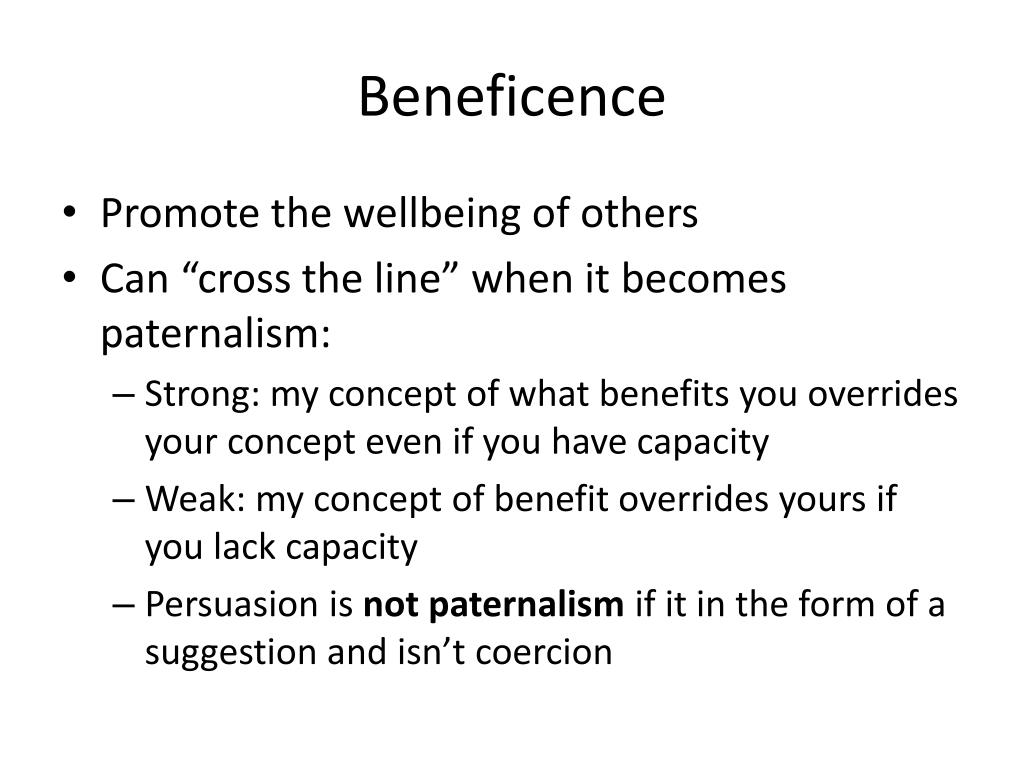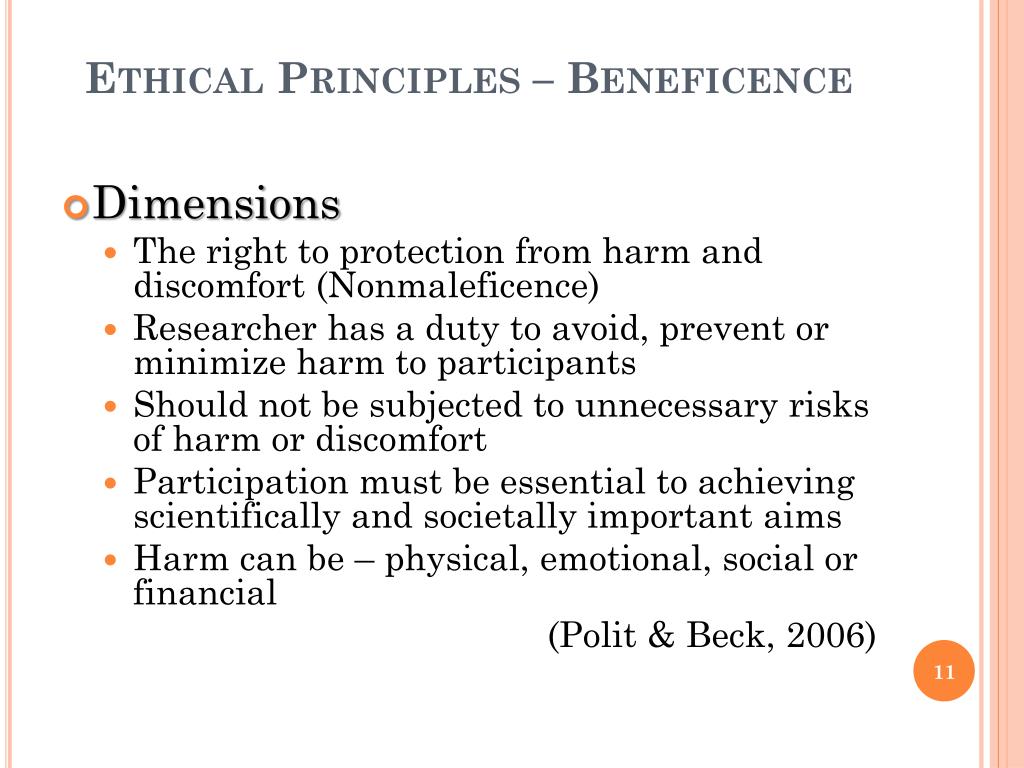

For example, when considering a research design, the principle of beneficence should cause us to ask if there is another way that we could obtain the same knowledge but with lower risks to participants. The principle of beneficence is behind efforts by researchers to minimize risks to participants and maximize benefits to participants and society. That is, respect for persons implies that participants should be presented with relevant information in a comprehensible format and then should voluntarily agree to participate.īeneficence can roughly be understood to mean having the interests of research participants in mind. The principle of respect for persons is interpreted to mean that researchers should, if possible, receive informed consent from participants, and the Belmont Report identifies three elements of informed consent: information, comprehension, and voluntariness. The Belmont Report argues that respect for persons consists of two distinct principles: individuals should be treated as autonomous and individuals with diminished autonomy should be entitled to additional protections.

When facing a research ethics challenge, going back to these three principles can often be very helpful.

These three principles, which are somewhat abstract in the Report, were later operationalized into the the detailed rules and procedures that make up the Common Rule, which governs research at US universities. Commissioned by the US Government in response to ethical failures in medical research, such as the Tuskegee Syphilis Study, the Belmont Report was written by a panel of experts and proposes three principles that should underlying the ethical conduct of research involving human subjects: 1) Respect for persons 2) Beneficence and 3) Justice. One excellent source of existing wisdom about research ethics is the Belmont Report, which was published in 1979. Although the specific ethical issues that we face are new, the general problems are very old. When making decisions about the ethics of our own research - and having debates about research ethics in the digital age more broadly - researchers should make use of existing principles of ethical research that have already been developed. Because the tools of digital experimentation will evolve more quickly than shared norms about research ethics, we are likely to continue to confront disagreements about research ethics for some time to come. Research ethics for online field experiments, on the other hand, are still a subject of great disagreement, as was illustrated by the recent debates over the Facebook emotional contagion experiment. Research ethics for lab-based psychology experiments are relatively well-establish.


 0 kommentar(er)
0 kommentar(er)
